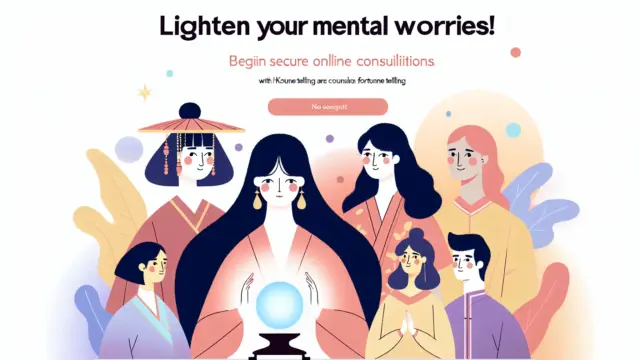Have you ever found yourself in a heated argument with your partner, wondering how things escalated so quickly? Conflicts in relationships are more common than we think, and they can often leave us feeling disconnected and frustrated. The good news is that understanding the root causes of these disagreements can pave the way for effective reconciliation and a deeper bond with your loved one.
In this article, we’ll explore the various reasons couples find themselves in conflict, from emotional misalignment to communication gaps. We will also provide you with practical steps to navigate these tough moments and restore harmony in your relationship. By learning to communicate better and appreciate each other’s perspectives, you can transform conflicts into opportunities for growth.
Let’s embark on this journey together to strengthen your connection and build a brighter future as a couple. After all, every conflict is an opportunity to learn more about each other and deepen your love.
- Discover the root causes of arguments and how to address them
- Learn effective techniques for reconciliation and communication
- Build a stronger future together with shared goals and practices
1. What Causes Arguments? Deepening Understanding
Emotional Misalignment
When we think about conflicts in a relationship, one major factor often comes to mind: emotional misalignment. This happens when partners are not on the same emotional wavelength, leading to misunderstandings and frustration. For example, one partner might be feeling overwhelmed and stressed, while the other is looking for connection and support. This disconnect can create tension and spark arguments, even over trivial matters.
Recognizing emotional misalignment is the first step toward addressing it. It’s important to check in with each other regularly, sharing feelings and experiences openly. By doing so, you can better understand what your partner is going through and find ways to support one another. This kind of emotional awareness can help you navigate conflicts with greater empathy and understanding.
Moreover, being aware of your own emotions is equally crucial. When you know what triggers your feelings, you can communicate them more effectively to your partner. This proactive approach can prevent small disagreements from escalating into full-blown arguments.
Lastly, consider seeking common ground. Identify shared priorities and values that reinforce your emotional connection. This practice can help you both feel more aligned and reduce the likelihood of conflict.
- Regular emotional check-ins can foster understanding.
- Open communication about feelings enhances empathy.
- Identifying shared values strengthens your bond.
Lack of Communication
Another significant factor that leads to conflicts in relationships is a lack of communication. When partners fail to express their needs, desires, or concerns, misunderstandings are bound to arise. It’s easy to assume that your partner knows what you’re feeling or thinking, but often, assumptions can lead to frustration.
Improving communication means being intentional about how you share your thoughts and feelings. Use “I” statements to express yourself without placing blame. For example, saying “I feel neglected when we don’t spend time together” is more constructive than “You never want to hang out.” This approach can encourage a more open dialogue between partners.
Remember, communication is a two-way street. It’s just as important to listen actively as it is to express yourself. By creating a safe space for both sharing and listening, you can minimize conflicts and foster a healthier relationship dynamic.

If you’re intrigued by the intricacies of communication in relationships, you’ll find valuable insights in the article “Secrets for Couples to Reconcile! Tips on Mental Preparation and Communication.” This piece dives into effective strategies to improve communication and mend relationships, complementing the tips shared here on understanding and navigating conflicts.
- Use “I” statements to express feelings constructively.
- Active listening encourages open dialogue.
- Creating a safe space for communication reduces conflicts.
2. Steps to Overcome Conflicts
Take Time to Cool Down
When tensions rise during a conflict, it’s easy to get swept up in the heat of the moment. However, taking a step back to cool down can make a big difference. This pause allows both partners to gather their thoughts and emotions before diving into the discussion again. It’s not about avoiding the issue but rather approaching it with a clearer mindset.
By giving each other some space, you can reflect on what triggered the argument and how you truly feel about the situation. Use this time to engage in activities that help you relax, whether it’s going for a walk, listening to music, or even practicing mindfulness. When you come back to the conversation, you’ll likely find that you’re more open to listening and understanding each other.
- Taking breaks during heated moments can prevent escalation.
- Engaging in calming activities helps to clear your mind.
- Returning to the conversation with fresh perspectives fosters better discussions.
Respecting Each Other’s Opinions
One of the key components of reconciliation is respecting each other’s opinions, even when you disagree. It’s important to remember that you and your partner may have different perspectives shaped by your unique experiences and values. Embracing these differences can be the foundation for a more robust relationship.
Start by actively listening to your partner’s viewpoint without interrupting. This shows that you value their opinion and are willing to understand where they’re coming from. Even if you don’t agree, acknowledging their feelings can help reduce defensiveness and create a respectful dialogue.
Additionally, try to express your own opinions in a way that emphasizes your feelings rather than making accusatory statements. For instance, saying “I feel hurt when decisions are made without my input” is more constructive than implying that your partner doesn’t care about your thoughts. This approach not only fosters understanding but also builds trust between you both.
By taking the time to genuinely respect one another’s opinions, you create a safe environment for open communication, making it easier to navigate conflicts in the future.
- Actively listen to your partner’s viewpoint without interruptions.
- Acknowledge feelings even when you disagree to reduce defensiveness.
- Use “I” statements to express your opinions constructively and respectfully.
3. Communication Techniques for Reconciliation
How to Apologize Effectively
Apologizing might seem straightforward, but it can be one of the most challenging aspects of reconciliation. A genuine apology can help heal wounds and pave the way for understanding. Start by acknowledging what went wrong and how it has affected your partner. This shows that you recognize the impact of your actions and that you genuinely care about their feelings.
Be specific in your apology. Instead of a vague “I’m sorry,” try saying, “I’m sorry for raising my voice during our argument; it wasn’t fair to you.” This not only clarifies what you’re apologizing for but also demonstrates your commitment to improving your behavior in the future. It’s also helpful to express your desire to make things right, which reinforces your dedication to the relationship.
Moreover, remember that an effective apology involves active listening. After you apologize, give your partner the space to express their feelings. This not only allows them to feel heard but also opens the door for a healthier dialogue about the conflict. Remember, the goal is to foster understanding and connection, not to win an argument.
- Acknowledge the impact of your actions on your partner’s feelings.
- Be specific in your apology to show commitment to change.
- Encourage your partner to share their feelings after your apology.
Expressing Gratitude
In the midst of conflicts, it’s easy to overlook the positives in your relationship. Taking the time to express gratitude can significantly enhance your connection. Recognizing the efforts your partner makes, whether big or small, fosters a sense of appreciation and strengthens the bond between you.
Gratitude can be as simple as saying, “I really appreciate you listening to me during our discussions.” This acknowledgment not only shows that you value your partner’s presence but also creates a positive atmosphere that can help ease tensions. When both partners feel appreciated, it becomes easier to navigate conflicts and maintain a supportive environment.
Incorporating moments of gratitude into your daily interactions can transform your relationship dynamics. Make it a practice to share what you’re thankful for regularly. This approach helps to build a foundation of positivity that can carry you through challenging moments.
- Acknowledge your partner’s efforts to strengthen your bond.
- Use gratitude to create a positive atmosphere during conflicts.
- Make expressing gratitude a regular practice in your relationship.
4. Building a Future Together
Setting Common Goals
As you work through conflicts and improve your communication, it’s essential to focus on building a shared future together. Setting common goals can provide a sense of direction and purpose in your relationship. These goals can range from personal aspirations to relationship milestones, such as planning a trip together or even discussing future family plans.
When you take the time to define what you both want to achieve, it creates an environment of collaboration and teamwork. Sit down together and openly discuss your dreams and aspirations. This process not only helps you understand each other better but also strengthens your bond, making it easier to navigate conflicts when they arise.
Moreover, having common goals encourages both partners to support each other actively. When challenges come up, you can remind yourselves of the bigger picture and work together to overcome obstacles. This shared vision fosters resilience in your relationship, allowing you to grow stronger together.
- Define shared aspirations to create a collaborative environment.
- Discuss relationship milestones to strengthen your bond.
- Actively support each other in achieving common goals.
Regular Communication Practices
To maintain a healthy relationship, regular communication practices are key. It’s not just about talking during conflicts; it’s about creating a consistent routine of sharing thoughts and feelings. Setting aside time each week to check in with each other can help keep the lines of communication open, preventing misunderstandings down the road.
During these check-ins, encourage each other to share not only challenges but also successes and positive experiences. This balanced approach fosters a sense of gratitude and appreciation, reinforcing the connection you have. Remember, the goal is to create a safe space where both partners feel comfortable expressing themselves.
By incorporating regular communication practices into your routine, you set the foundation for a strong relationship. This proactive approach allows you to address potential issues before they escalate and ensures that both partners feel heard and valued.

If you’re interested in deepening your understanding of relationship dynamics, you might find value in exploring the article titled Why is My Boyfriend Suddenly Cold? Discover the Reasons and How to Bridge the Gap!. This piece delves into the psychological factors that can lead to sudden emotional distance in relationships, providing insights and strategies for reconnecting.
- Set aside weekly time for open discussions.
- Encourage sharing both challenges and successes.
- Create a safe space for expressing thoughts and feelings.
Summary of Key Points for Couples Facing Conflict and Reconciliation
Navigating conflicts in a relationship can be challenging, but it also presents an opportunity for growth and deeper understanding between partners. By recognizing the root causes of arguments, such as emotional misalignment and lack of communication, couples can learn to approach disagreements with empathy and openness. Taking time to cool down, respecting each other’s opinions, and practicing effective communication techniques can foster a healthier dialogue and lead to reconciliation.
Furthermore, expressing gratitude and setting common goals can strengthen the bond between partners, creating a collaborative environment that supports both individuals. Regular communication practices not only prevent misunderstandings but also reinforce the connection that couples share. Ultimately, embracing these strategies can transform conflicts into valuable experiences that enhance the relationship.
In summary, remember that every couple faces conflicts, and how you choose to resolve them can significantly impact the future of your relationship. By implementing these techniques, you can build a stronger partnership that thrives in both good times and bad.
- Recognizing emotional misalignment helps in addressing conflicts.
- Using “I” statements and active listening fosters better communication.
- Setting common goals and expressing gratitude strengthens the relationship.
We’d love to hear your thoughts! How do you navigate conflicts with your partner? Share your experiences and tips in the comments below.








Comment